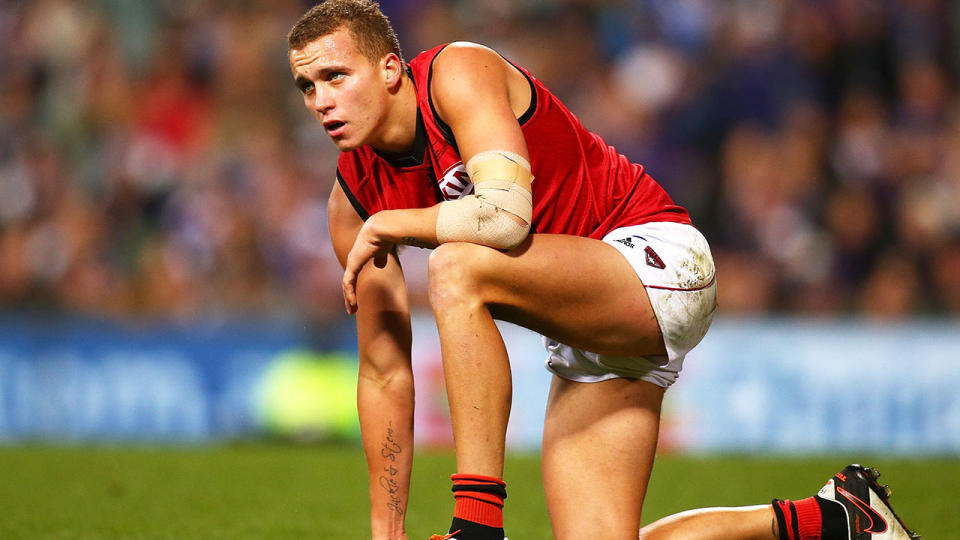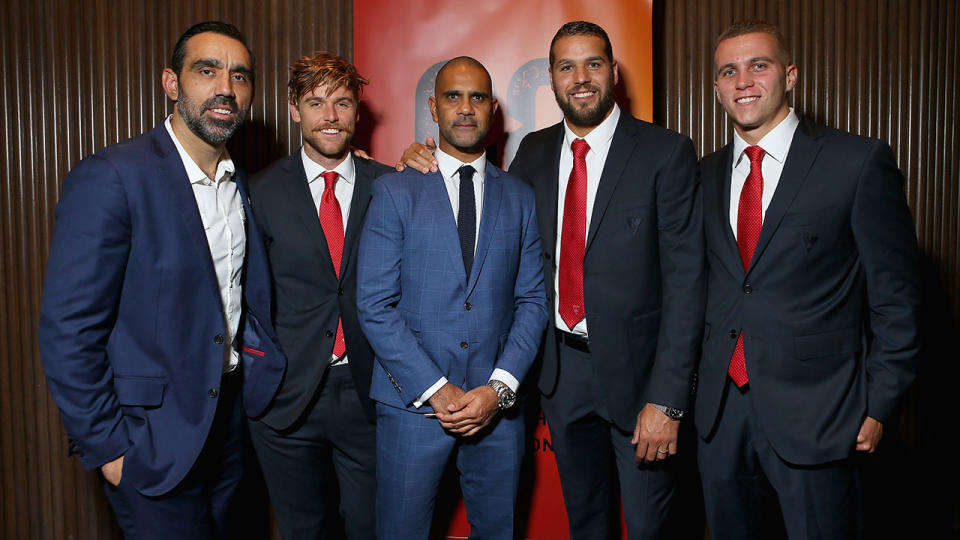'What am I really doing': Shaun Edwards' ambitions beyond AFL career
By Shaun Edwards
They were probably pretty surprised. And I can’t blame them. It can’t be often that a 23-year-old turns down an AFL contract.
About halfway through the 2017 season, I sat down with the Swans’ welfare manager Dennis Carroll and told him what I was thinking. Dennis said, ‘Let’s chat again at the end of the month’. But nothing changed inside me.
At my end-of-year review, I met with John Longmire, Rhyce Shaw, John Blakey and Tom Harley at the club’s offices at the SCG. They said they were working on a fresh deal for me and I guess they were expecting me to be thrilled by that.
Then, I just said, ‘I love this club and everyone here, I love the Bloods culture – but I want to retire’.
Tom Harley, who’d been a mentor of mine at the AIS, said, ‘Look, this is the first time you’ve said this. Let’s give you a couple of days and see how you feel’.
A couple of days later, I rang John Longmire and said I’d slept well and thought more about it. I told him I felt there was more out there for me to do. I told him I was going to stick with my decision.

Dan Hannebery rang me later that day and asked what was going on. A few of the guys were genuinely surprised at the news. But, ultimately, I think everyone just wants you to be happy doing what you’re doing.
I was very young to finish up, but I’d already experienced some amazing things in the game. I was at the Giants when they were beginning to build their club, played for Essendon through the drugs saga and ended up at the Swans after that.
I was living what many would consider a dream. I bought myself a new house and the car I’d always wanted, was getting around in nice new clothes.
I’d taken a hanger on the ‘G, kicked a goal from 70 – everyone wants a photo with you after that – but I couldn’t help thinking, ‘What am I really doing?’
If I died tomorrow, what would I have achieved? Kicking goals in footy games? Getting a bigger contract? That stuff didn’t seem important to me.
I know sport does beautiful things, it does lift people up. But I wanted to make a difference doing other work. I was certain there were things beyond football that were going to make me happier – give me more meaning – in my life.
And, I’m one of those people who, once they make a decision, there’s no turning back.
The world keeps spinning
It’s been a couple of years since I finished up and I feel like I’ve achieved some great things since leaving the game.
I work at AIME Mentoring, where our goal is to mentor marginalised kids around the world from high school into university. In Australia, we work specifically with Indigenous kids, trying to close the gap in education.
It’s important work. Everyone sees the close-the-gap campaign in the media but there’s still a 30 per cent gap between Indigenous and non-Indigenous kids in terms of getting through school and therefore progressing on to jobs post-school.
Education is key to lifting kids out of inequality. Education equates to higher paying jobs, better health results, a better society.
My job is to look after international projects. I launched a campaign in America last year. We chartered a plane from LA to Sydney, about 340 people, to come to the world’s first festival of mentoring. It was a big project.
I also look after events and our apparel line. The funds we raise go back into the program. Every day is different and interesting and has a purpose.

I have no regrets. I’m lucky to have played seven years on a list, 24 games, it’s not bad. I got to live out my childhood dreams. But I felt it just became about money, how big my next contract was going to be.
That wasn’t what I wanted. It made me lose passion for the game and I’ve hardly played since.
If I did have any reservations about leaving footy, it was because I’d seen a lot of people, including some real superstars, talking about how difficult it is to transition out of the game.
Maybe it is for some. But for me it wasn’t. You wake up the next day and the world is still spinning. You can do whatever you want to do if you keep applying the same traits to life as you did to sport.
I think we need to start reframing this idea that leaving the game is tumultuous. It’s the same, you get up, work hard, turn up on time and be the best person you can.
To me, being the best person I can be means doing what I can to address the highest suicide rate among Indigenous people in the world, our massive health issues, the education gap.
Half my family’s dying 30 years before non-Indigenous people. To me, doing work around that is actually world-changing, not playing a couple of hundred footy games.
Read the full story here at PlayersVoice
